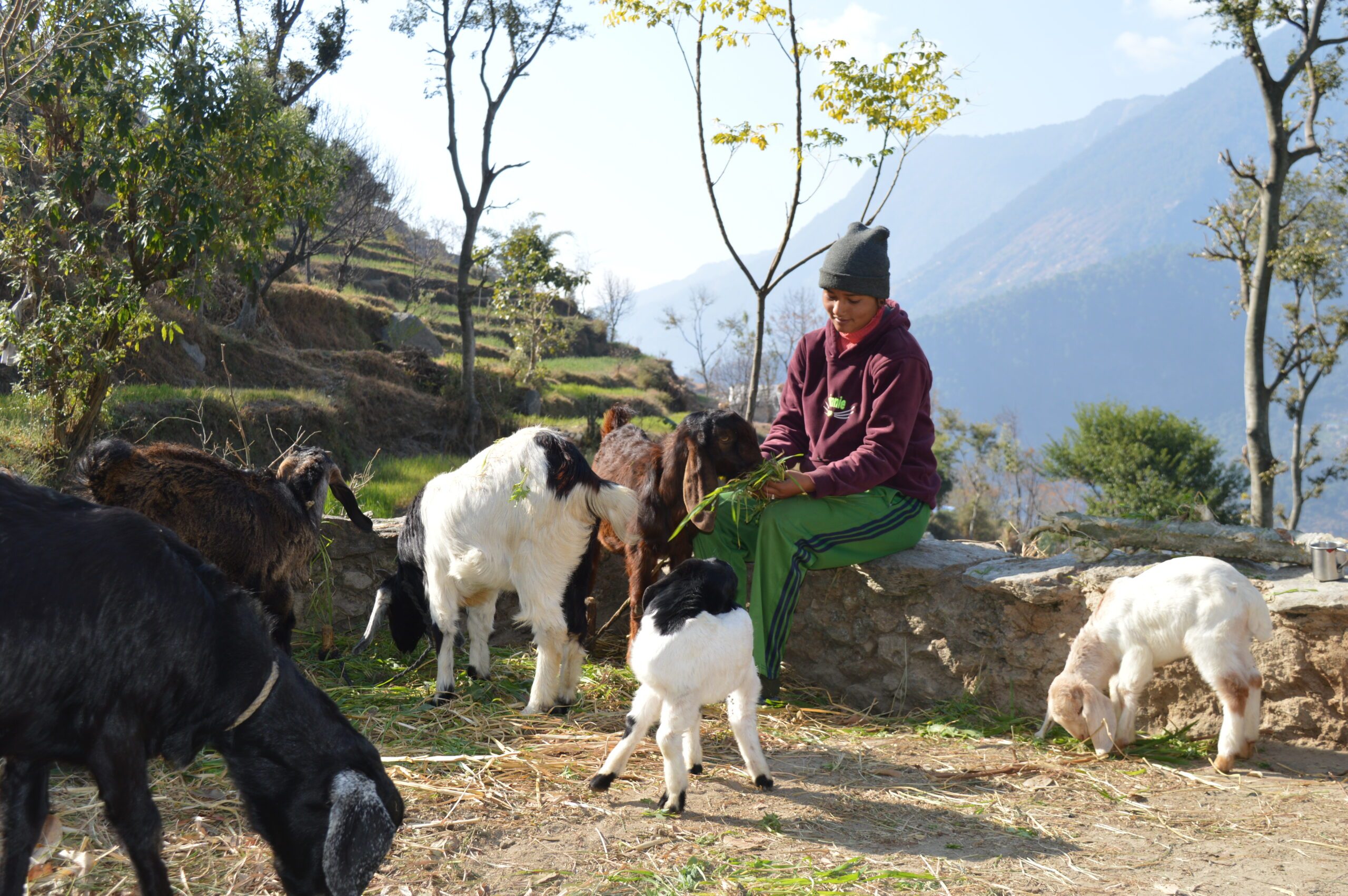Girls use entrepreneurship to fund their education
The World Economic Forum estimates it will take 131 years to reach gender equality. That's why young women like Shristi in Nepal are engaged in livelihood training, developing their skills and becoming entrepreneurs to fund and continue their studies. Together, we can beat the clock.

“The major obstacles facing girls like me in our village is poverty which hinders their education,” says 20-year-old Shristi from Kalikot, a district in western Nepal. “Numerous girls in my school had to drop out for financial reasons or early marriages.”
“Numerous girls in my school had to drop out for financial reasons or early marriages.”
Shristi
Six years ago, Shristi’s father passed away, leaving the family struggling to make ends meet. They sold their goats, their main source of food and income, and her older sisters left home to get married, leaving Shristi to take care of the household.
By doing odd jobs such as selling sand and stone, she was able to support her family and pay for her younger brothers to go to school, putting aside her own hopes and dreams. “My hope was to become an entrepreneur, so I could support both myself and my family financially, while also pursuing further education.”
“My hope was to become an entrepreneur, so I could support both myself and my family financially, while also pursuing further education.”
Shristi
This goal seemed an impossibility until Shristi was invited to join a youth training scheme run by Plan International as part of a programme to increase economic opportunities for girls who are at risk of early marriage.
Young entrepreneur and girls’ rights advocate
After learning business development skills, Shristi received 2 goats so she could restart the family’s goat rearing business. Now, she has 8 goats, helping Shristi support her mother and allowing her to focus on her own and her brothers’ education.
“It was an amazing experience being part of the business development skills training. Learning business skills wasn’t just about growing my venture; it was about unlocking my potential and paving a path to independence and empowerment,” says Shristi.
It was while taking part in the skills training that Shristi heard about Plan’s Champions of Change programme which teaches girls about child marriage, sexual and reproductive health and rights, self-identity and goal setting.
Shristi’s mother Sunita says she’s noticed a remarkable change in her daughter’s behaviour since the training. “Once shy and hesitant to speak her mind, Shristi has now become proactive and assertive. Shristi has not only taught valuable lessons to her brothers but has also inspired me and the whole community.”
Using her leadership skills to pass on what she has learned to other young people in her village, has earned Shristi recognition and praise from her community. “Advocating against child marriage has generated support from the local government to push for change,” she says. “I’ve also been given a role in the municipality’s security force team.”
Back in school
Today, Shristi is back in school and aims to finally finish her secondary education. “Before, I could only attend school occasionally. My life became easier, and I have been able to continue my education, passing from grade 8 to 10,” she says. “My school teacher has also noticed significant changes in my school work.”

With her advocacy and business management skills, Shristi’s future now looks brighter. “Understanding the significance of education, skills, business management, and resource utilisation has given me the confidence to expand my goat farming venture. I am now better able to manage my income and expenses to ensure its success,” she says.
Shristi now wants to ensure that her older sisters who married early do not face any hardship, as well making sure that her brothers finish their education. “The training programme provided crucial support during a challenging time for me and my family. The organisation believed in me and helped me achieve my goals, bringing stability and happiness to our home.”
How we are supporting girls
The main objective of Plan International’s Ending Child Marriage programme is to ensure the retention of girls in school and strengthen economic opportunities for girls and their families who are at high risk of the child, early and forced marriage.
With the intention of reaching 1,250 out-of-school children and adolescents, the project aims to return 750 girls back to the classroom. Also, 220 youth, including 165 girls, will receive training in vocational, entrepreneurship or work-related skills. In addition, 225 young women will be introduced to women’s cooperatives where they can access investment capital to start new businesses.


